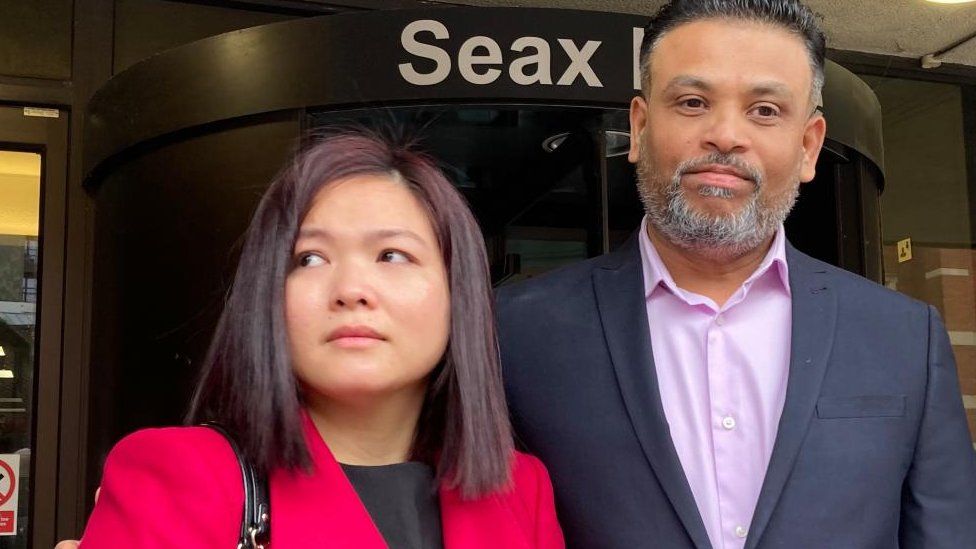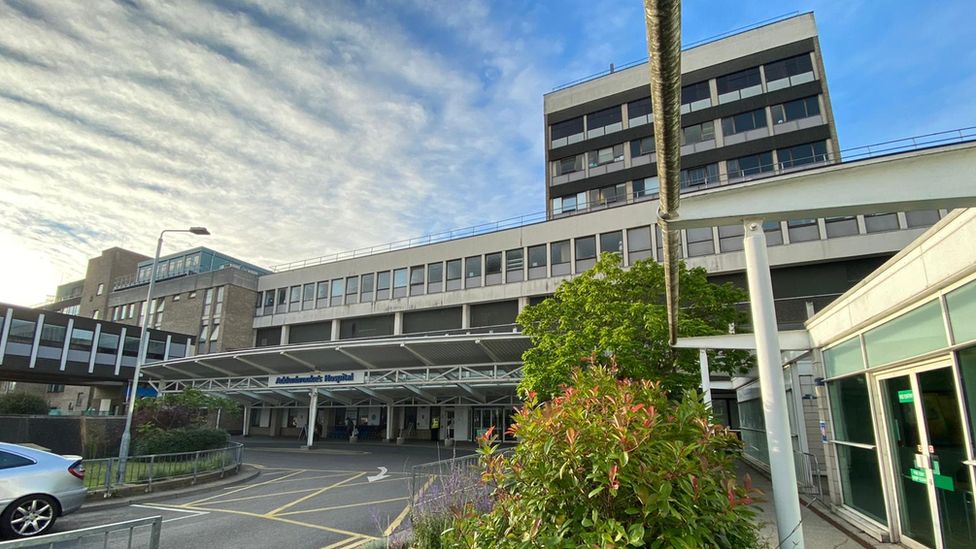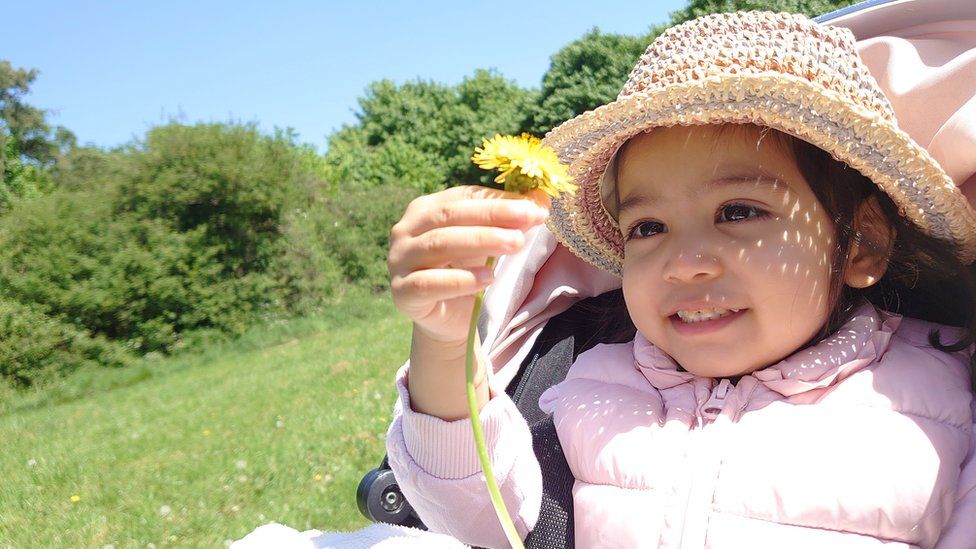-
Published2 hours ago
The grieving parents of a toddler have said they will discuss their next move with a lawyer after a hospital admitted she had received “sub-standard” care.
A consultant at Princess Alexandra Hospital in Harlow, Essex, apologised to Ivy Rupasinghe’s family at an inquest into her death.
Two-year-old Ivy had been sent home with a prescription for antibiotics.
Coroner Lincoln Brookes did not blame the hospital for Ivy’s death but said there had been “various shortcomings”.

The inquest at Chelmsford on Monday heard how Ivy had been sent home with the prescription after waiting about six hours at the hospital’s emergency department in October 2022.
Dr Adeyemi Kareem had thought she had tonsillitis.
Ivy’s father Kelum Rupasinghe, 49, and mother Thuy Lam, 37, who live in Harlow, had not been given antibiotics for her before leaving the hospital.
The coroner heard the department had run out of penicillin on an “extremely busy” day.

Ivy’s story at a glance
- Ivy was born on 8 March 2020 – the month the first Covid-19 lockdown began
- Ivy became unwell on 5 October 2022, with a temperature, a cough and vomiting
- She was taken to a GP on 6 October 2022. The GP thought she had a viral flu and suggested Calpol or paracetamol
- On 8 October 2022 her parents spotted a rash and took her to the Princess Alexandra Hospital. A doctor in an emergency department thought she had tonsillitis
- Ivy’s condition worsened on 9 October 2022. Her parents took her back to the hospital and she went into cardiac arrest during the journey. She was resuscitated at the hospital then moved to an intensive care unit at Addenbrooke’s Hospital in Cambridge.
- She died at Addenbrooke’s on 19 October 2022 after her parents agreed to let doctors turn off a life-support machine

Ivy went into cardiac arrest the following day and died, in Addenbrooke’s Hospital, Cambridge, less than two weeks later after suffering multiple organ failure and brain damage.
No complaint was made about the care Ivy received at Addenbrooke’s.

Post-mortem tests showed she had contracted the Epstein-Barr virus – which causes glandular fever – the coroner was told.
Consultant paediatrician Edward Haworth, based at the Princess Alexandra, conducted an investigation following Ivy’s death, the inquest heard.
“Ivy should not have been sent home,” he said.
“I have apologised before and I apologise again. The care she received was sub-standard.”
‘Caused harm’
The consultant said a “number of things” had been put in place, which he hoped would prevent a repeat of such a “scenario”.
He said he thought Ivy would probably have continued to deteriorate even if she had been admitted.
But he said he still thought she had been caused “harm”.
Another Princess Alexandra consultant, Nicola Ray, said what happened to Ivy was “less than best practice”.
But Dr Ray thought Ivy would still have died had she been admitted.
Dr Kareem had left the hospital shortly after Ivy’s death, the coroner was told.
‘Easy solution’
Lawyer Robert Barker, of MR Law in Harlow, who represented Ivy’s parents, told the inquest: “It’s difficult to see how Ivy was provided with a basic standard of care.”
Mr Brookes said there had been “various shortcomings” which hospital bosses had “rightly admitted”.
“it seems to me he (Dr Kareem) saw what he expected to see – what he wanted to see,” said Mr Brookes.
“An easy solution to the problem.”
The coroner concluded that Ivy’s death had been as a result of multi-organ failure caused by the Epstein-Barr virus.
Mr Rupasinghe told the BBC, after the inquest, that the family would seek legal advice before “taking things further”.
“I don’t know,” he said. “We are just here to get justice.”
Ivy’s mother broke down as she added: “Our family is completely broken.”

Follow East of England news on Facebook, Instagram and X. Got a story? Email [email protected] or WhatsApp 0800 169 1830
